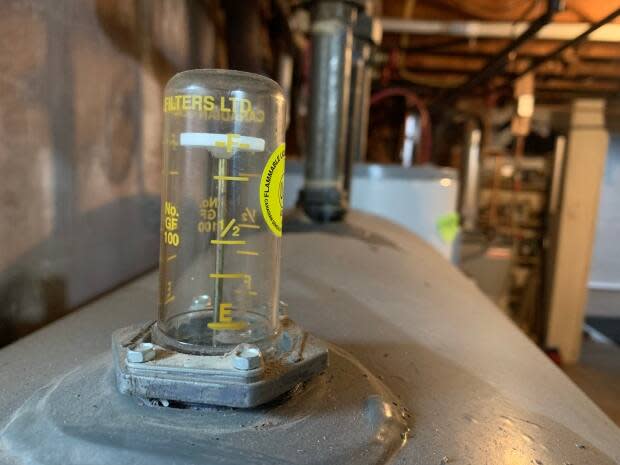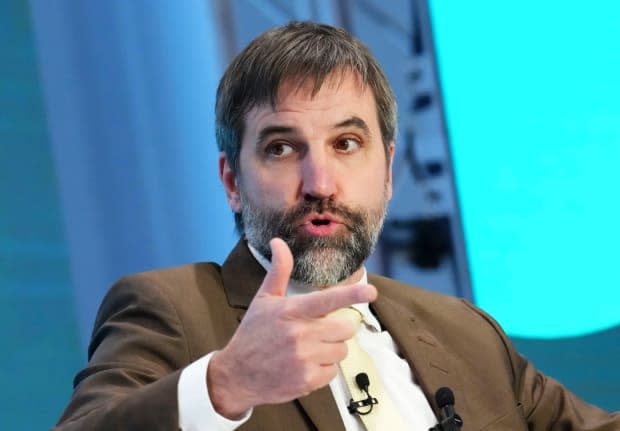Rebuffed by feds, P.E.I. determined to cut pollution — and payments to Ottawa

P.E.I.'s Environment Minister Steven Myers proposed a three-year "ease-in" period to start applying the province's carbon tax on home heating oil in an email to his federal counterpart Steven Guilbeault dated Sept. 14. Ottawa rejected that proposal.
That was 12 days after Ottawa's deadline for the provinces to submit new plans for carbon pricing, and a week after the feds had told P.E.I. its initial proposal could lead to Ottawa imposing its federal backstop program in the province.
Last week, Ottawa announced it would do just that in P.E.I., Newfoundland and Labrador and Nova Scotia.
Myers's previous proposal, according to a series of emails the minister shared with local media, sought to maintain heating oil's exemption from carbon pricing in the province, and to freeze carbon pricing on other fuels in P.E.I. at the 2022 level of $50 per tonne of emissions "until costs become reasonable again."
"In the recent months, we have seen record high gasoline prices on Prince Edward Island — yet consumption has increased," Myers wrote to Guilbeault in an email dated Sept. 2, "which shows that transitioning Islanders to cleaner methods of transportation is required if we truly want to reduce emissions."
In the same email, Myers said P.E.I. isn't opposed to a carbon tax. "In fact, we support the federal policy initiative."
But he said charging the carbon tax on heating oil, which this year has reached record-high prices, "will put low income households at an economic disadvantage."
The same day P.E.I. switches to the federal carbon backstop program for fuel pricing on July 1, 2023, the price on carbon will jump to $65 per tonne.
That means the tax as applied that day on heating oil, which will no longer be exempt on P.E.I., will be 17.4 cents per litre.

Offsetting that, Islanders will start receiving quarterly carbon rebates from the federal government. Those payments will start off at $960 per year for a family of four.
Heat pump program
P.E.I. has a program to provide free heat pumps to households with incomes under $55,000, and last week the federal government announced a similar program of its own.
But Myers said it would take another three or four years to complete the province's transition from oil to electric heat.
His pitch to Guilbeault — after the province's initial proposal was shot down — was to start charging $30 per tonne of emissions on furnace oil in 2023, which would start the tax off at eight cents per litre, doubling that in 2024 before catching up with the federal carbon price in 2025, which by that point would be $95 per tonne.

Among the conditions Ottawa was insisting on if P.E.I. was to maintain control of its own carbon pricing regime:
that the province drop exemptions not just on home heating oil but also for propane.
that the province address a lower carbon price charged on marked fuels used in farming and fishing.
that the province provide a commitment "that revenue collected under Prince Edward Island's carbon price will not be used to dampen or negate the carbon price signal.
In 2019 and again in 2020, P.E.I. dropped its provincial excise tax on gas and diesel to reduce the impact of the new carbon levy.
Over two years, the provincial gas tax was lowered by 4.6 cents per litre. For diesel, the drop was 6.1 cents per litre.
Ottawa won't be able to collect revenue from P.E.I. if we stop emitting, which is what our ultimate goal is. — Steven Myers
Ever since, the province has said it was applying revenue from the carbon levy to offset the drop in excise taxes.
For the 2022-23 budget year, the province said that allocation was worth $13.2 million, more than a third of all revenue from the carbon tax and by far the single biggest allocation from the tax.
Myers told reporters Friday it was his understanding Ottawa will require P.E.I. to reinstate the drop in excise taxes. But a spokesperson for his department told CBC Monday there was no plan to remove the "provincially-funded" reduction in fuel taxes.
On Friday, Myers also committed to continuing to fund the environmental programs the province has said it was paying for through the carbon tax, even though those revenues are now being returned to Islanders.
"Our climate programs will help defeat [the] carbon tax anyways because people won't need to pay a carbon tax if they're not polluting," said Myers.
"Ottawa won't be able to collect revenue from P.E.I. if we stop emitting, which is what our ultimate goal is."


